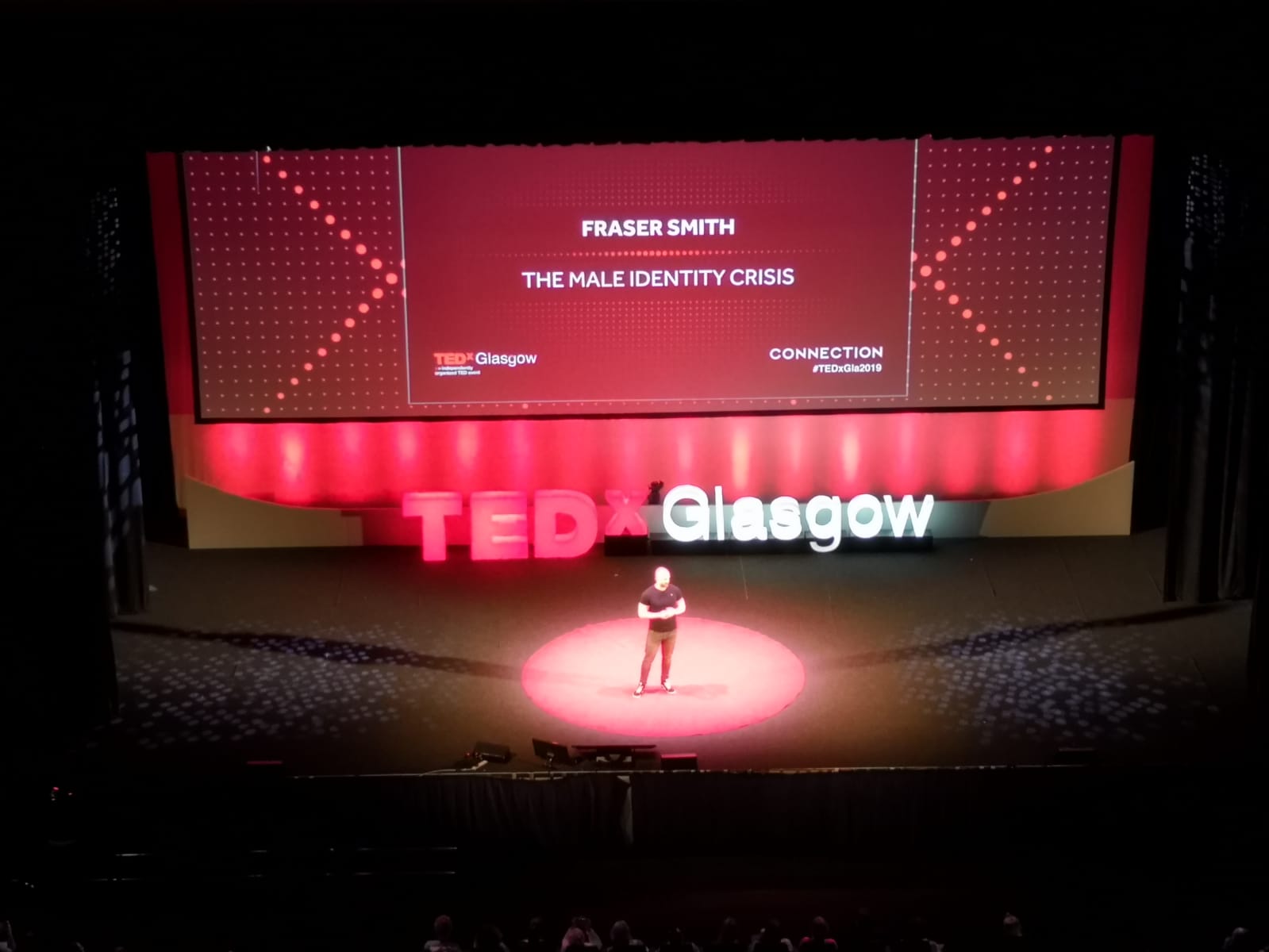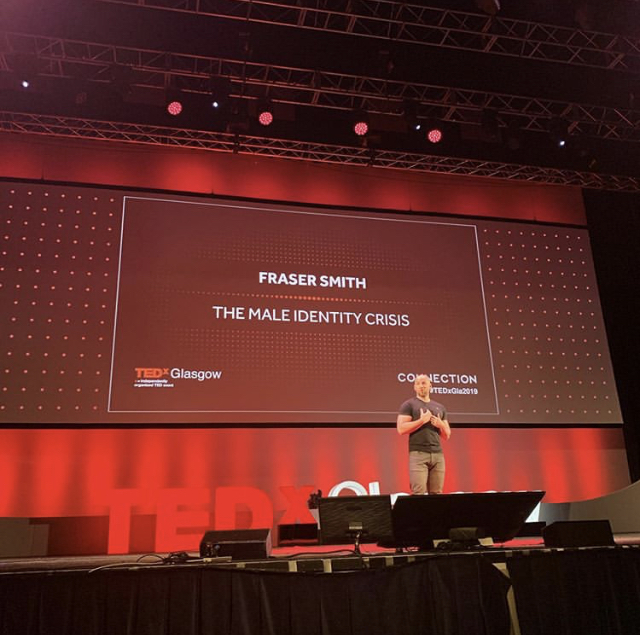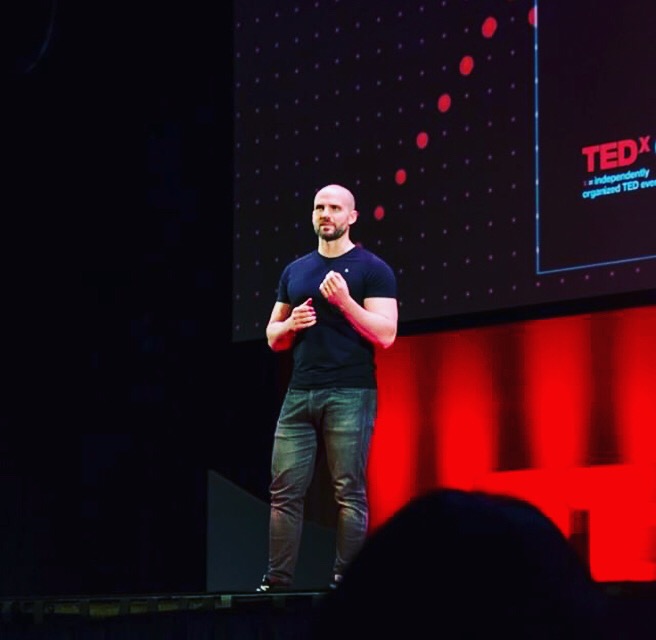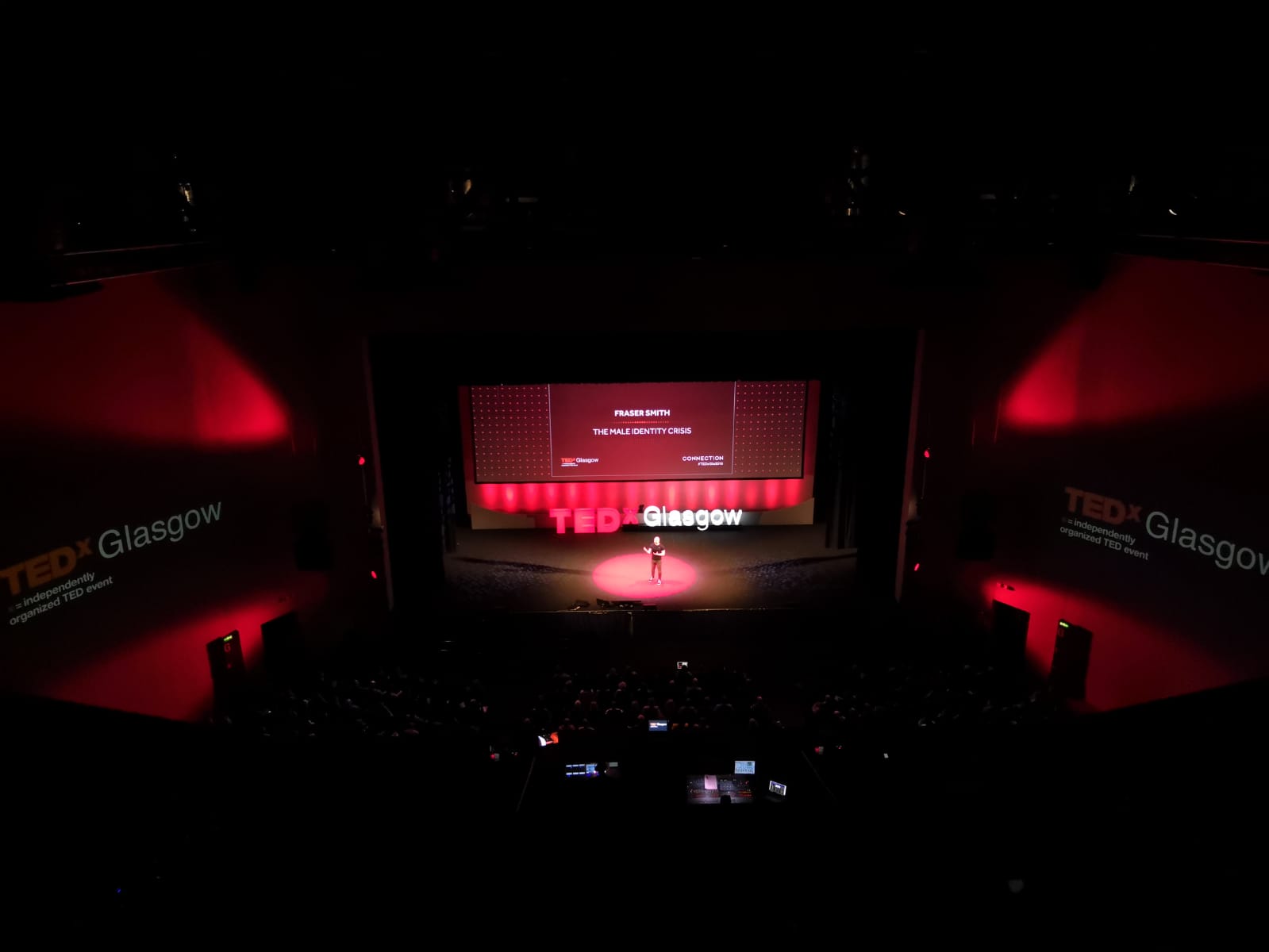It was a day full of anticipation, full of excitement and of the unknown.
When you hear about TED, your mind immediately gets drawn to all kinds of images, big crowds, the Madonna mic, the red circle, hard-hitting and inspiring talks. TEDx Glasgow had it all and it was such a joy and an honour to have been a part of it.
Speaking is one of those things that I have a strange connection with. I’ve always been a good communicator when academic performances were poor growing up, I was always able to communicate well with others. There is something about speaking in front of large groups that causes huge anxiety but also creates enormous excitement.

I suppose in some ways it’s like the person that does ultra marathons. We might think that it’s terrifying, anxiety-provoking and gut-wrenching, the person that does the ultra marathon would probably agree, but they are still going to sign up for the next one.
I feel similarly with regards to speaking, I love it, I love the buzz and the anticipation. If I’m honest, I love the idea of communicating expertise and knowledge to a group of willing ears.
This passion for speaking and my passion for mental health and especially men’s mental health drew me to TEDx Glasgow. With over 2,000 people in attendance, it’s one of the biggest TEDx platforms on earth.

It was a number of months of applying and going through different rounds of the application process, finally hearing that I had been accepted as a speaker a few months before the talk.
I was immediately assigned a coach who was incredible and who I met with each week. We discussed the topic of my talk, The Male Identity Crisis. We looked at the message I wanted to convey and how I would manage this in just 8 minutes.
This was unlike any talk I had ever given before. I had to do more than just communicate research and empirical findings, I had to illustrate my story and discuss why this topic was so important to me.

I was anxious about memorising my script. It was 8 minutes long and I had no idea how I was going to memorise all the words and sentences that my coach and I had so painstakingly gone through with a fine-tooth comb. My dyslexia means that its really difficult for me to absorb the written word at times. As a result, I decided to create some illustrations of my talk notes.
This has always been helpful for me, rather than memorising words, I could memorise the images and remember what words I needed to say when each image popped up in my mind.
You can check out those images below here:

Men’s mental health is not only the main focus of my research on my counselling psychology doctorate, but it is also my passion. The fact that 78% of all suicides are completed by men, that 84 men a week take their own lives and that only one-third of the population of people in therapy are men.
The statistics are staggering and for me, one of the biggest contributing factors to the epidemic of men’s mental health and suicide is male identity and how we view men.

The way that men are viewed in society today, with what I think ha an element of a predatory nature, is the biggest component of men’s mental illness and male suicide I feel. In many ways, men are now encouraged to be vulnerable, to talk about how they feel and to seek help. However, at the same time, men are still expected to adhere to stereotypical masculine norms like being autonomous, not showing emotion and never asking for help.
It’s this conflicting identity that I feel leads to this male identity crisis and ultimately to men’s mental illness and male suicide.
The day finally arrived and it brought with it everything I had come to stereotypically associate with TED events. Massive crowds, the TED logo everywhere, art and different types of performers. It was amazing and difficult to not get drawn into the anxiety that came with speaking on such a platform.

I was keen to be around people as much as possible, I’m not someone that finds massive benefit in isolated moments during such anxious times. I spoke to family members and friends and chatted to volunteers in the green room.
I checked out a couple of the talks from some of the other amazing speakers and got prepared by rehearsing my full talk with my coach.
Waiting backstage was, of course, nerve raking but I was excited to get going.
The most anxious moment was getting strapped up with the mic and standing at the side of the stage, ready to give my talk.
Walking to the red circle felt like it took 20 minutes but when I got there, I was able to look out and felt a sense of confidence that I could remember my talk and communicate it well.

I always find that once you face a fear and prepare well in advance, you gain a real sense of accomplishment and joy from overcoming something that was originally a barrier for you. That’s exactly how I felt with this.
Doing my GetPsyched videos was of course initially nerve raking, no one really likes being filmed initially. However, that eventually became routine. This was very very different.
In truth, I have to say I really enjoyed every second of giving my talk. The joy of this whole process, the months of preparing, rehearsing and amending my script all concluded with what was an awesome day.

Since then the opportunities for speaking and connecting with others have really grown, but I don’t want this blog post to be just about me. I want to give some advice and belief to people that want to undertake a TED talk but perhaps think it’s out of their reach.
So, here are some of my top tips for getting started:
- You absolutely are capable of doing it. TED talks might have a huge global status and platform but that doesn’t mean you can’t apply or speak. TED is looking for innovating and interesting ideas, we all have those. So my first piece of advice is to believe that this is an option for you.
- When thinking of an idea to talk about, it doesn’t have to be a “never before heard of” topic. It could be a topic that we all understand but given a different angle due to your subject appreciation. Think about a topic you love and how that topic might be appreciated different because of your own living experience.
- Apply! You could spend months building up the courage and constructing ideas, but you’ll get nowhere if you don’t send that application form!
- The important thing is not about how well you know the topic, or how smart you can sound. The key to any process with a TED talk is to discuss what it means to you. What is your story connected to your topic? How can people connect with the story through you?
I encourage anyone thinking about doing something like this to go for it. TEDx Glasgow is one of the most incredible events and one of the biggest honours of my life!











